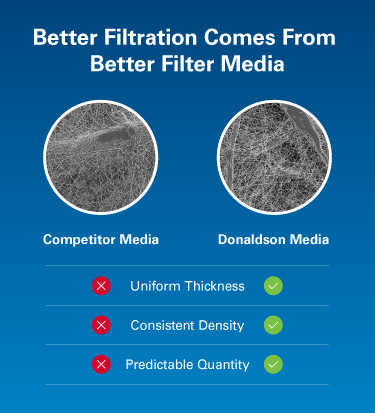
Earlier this year, the Republic of Macedonia received its first green-field investment from the French when car-parts maker Montupet signed a MoU to build a factory that will manufacture aluminum engine heads for Ford, Renault, Citroen, Peugeot, Audi and General Motors. Initially, the France-based Montupet will invest 60 million Euros which will go up to 100 million Euros in six years time.
The Montupet project is another in a long line of foreign direct investments by automotive companies into Macedonia. Johnson Controls set up a USD 40 million electronic automotive parts plant in Macedonia, choosing the country over Poland, Romania and Slovakia.
“In the other locations we were having difficulty finding and keeping qualified engineers. We are the first in the industry settling down here and that gives us the advantage of having skilled people joining the company and staying with us over a long period of time,” said Philippe Simon, Johnson Controls’ VP of global electronics in an interview to EE Times.
Macedonia’s strength as an emerging hub for automotive components is its pool of technically skilled workforce thanks to its strong university system. The country is also strategically located geographically so that it is close to other automotive manufacturing plants in Central Europe and Turkey. Over the past couple of years, the Macedonian government has put a lot of effort in improving the business climate of the country. This effort was rewarded with the World Bank ranking Macedonia as one of the top 5 reformers in the world in the Doing Business 2008 Report. Part of the general incentives package in Macedonia include a flat tax rate of 10 per cent on corporate and personal income and 0 per cent tax rate on reinvested profit. According to government officials, this means that starting a business in Macedonia can be done in only 4 hours for a cost of 42 Euros.
“For export-oriented high-tech companies in the automotive sector four Technological Industrial Development Zones (TIDZs) have been created with a status of free economic zones offering special incentives. Companies operating in the TIDZs will pay no taxes on corporate income for 10 years, 5% personal income tax for 5 years, and will have no VAT and customs duties for export production. The zones have excellent strategic location with an immediate access to a main international airport, railroad, and the vital road corridors 8 and 10. There is also free connection to piped natural gas, electricity, water and sewage, as well as land lease for up to 75 years at attractive concessionary rates,” said Viktor Mizo, CEO of the Agency for Foreign Investments of the Republic of Macedonia in an earlier interview to Automotive Industries.
While the TIDZs are good places to do business in in Macedonia, another emerging magnet for FDI is Bitola, in the southern part of the country. The International Finance Corporation in a report, dubbed Bitola as the easiest city in which to do business in South East Europe (SEE). Bitola ranked first among 22 cities in seven economies – Macedonia, Bosnia and Herzegovina, Croatia, Kosovo, Albania, Montenegro, and Serbia. The report benchmarks four areas of regulation that are subject to local jurisdiction and enforcement: starting a business, obtaining licenses, registering property, and enforcing contracts. “This recognition for Bitola vindicates Macedonia’s success as the fourth best reformer in the Doing Business 2008 Report among 174 countries. The pro-business reforms are continuing with full speed,” says a Macedonian government press release.
Automotive Industries caught up again with Viktor Mizo, CEO of the Agency for Foreign Investments of the Republic of Macedonia.
AI – What segments of the Macedonian economy are attractive to foreign investors?
Viktor Mizo – The service sector is the larger contributor to the economy in general, but the largest industrial sectors are metallurgy, agriculture and textiles. Industries outside the largest sectors of the economy are the most important and most competitive where we feel we can attract investments.
In particular, the most interest that we have seen over the last six months despite the current crisis is in the manufacturing of automotive components. Auto component and final automotive assembly has moved to Central and Eastern Europe, and our proximity to major markets in Europe and Turkey makes Macedonia very attractive. We can serve the markets in the region with annual sales of between five and six million cars.
For example, two years ago Johnson Controls set up operation here. Johnson Matthey, the largest manufacturer of catalytic converters in the world is about to start production in what will be the largest plant for catalytic converters in the world.
The second sector where we see a lot of interest is from companies looking to outsource their customer service centers or business processes. Companies are also interested in the multi-lingual skills of our population that are conversant in several Balkan languages.
Macedonians are fluent in several languages with the heritage from Bulgarian, Greek, Albanian, Serbian, Croatian and other neighboring nations. We are also interested in attracting investment in the IT sector. We are opening a new IT university next year that will graduate 800 people every year.
Agriculture has been a large part of the economy, especially the organic farming of fruits and vegetables.
These quality organic and natural foods are certainly opening the doors for large scale exports to new countries. At the same time we have companies from Israel and Gulf states growing crops in Macedonia to export to home markets or to third markets.
We are looking for investment in food production companies where they would do the assorting, packaging and processing of food to sell in third markets with value additions.
Our laws in real estate ownership were only recently reformed, and they now permit foreigners to own land and other properties. But because of this lag we also avoided recent economic contraction in the regional economies that depended on real estate investments.
However, we see interest in construction of office space, industrial real estate such as logistics centers and warehousing. Retail shops and shopping centers are also attractive to investors as Macedonia lacks retail square footage per capita in the region. Even building of single family homes and apartments are also attractive to investors.
AI – In the time of this economic crisis, what differentiates Macedonia from other countries, in terms of investments, and what advantages does it offer to potential investors?
Viktor Mizo – Excess capacity and low average wages make the country a new and reliable location for leading manufacturers to expand and relocate their business to.
While some of the automotive locations in Central and Eastern Europe are increasingly struggling with rising costs and acute labour shortages, Macedonia can competitively meet the needs of companies seeking to enhance profitability. Due to low labour costs outsourcing can also be an interesting option. In addition, Macedonia has a large potential of experienced engineers and skilled workers, with universities and technical schools being remarkably open for cooperation with individual investors.
Furthermore, Macedonia’s strategic location and its excellent infrastructure, offers investors one of the lowest transportation costs for their products and product components.
Monthly labor cost on average for 2008 was about €430 or $550, which is one of the most competitive rates in Eastern Europe. The important thing here is not only the cost but annual increase in labor cost. In Macedonia the annual increase over the last three years has been in line, which has been low, whereas in recently joined EU nations costs have been increasing between 15% and 25% a year. Labor costs in Romania in the last two years have increased 20% annually. Similarly, labor costs in the Czech Republic, Hungary, Poland and Slovakia have surged because labor markets are saturated. In addition, many skilled people have immigrated to Western Europe from these countries.
For example, labor costs in Poland exceed €1,200 a month – approaching the cost in some Western European countries. Companies are looking for new locations with competitive labor costs but at the same time an abundant supply of labor to ensure that the same trend will not occur two or three years from now.
One other thing that is very interesting about Macedonia is our fiscal package. We have the most beneficial tax rate in Europe. We have a flat 10% corporate and personal income tax, and at the same time, as of January this year we have zero percent tax on retained earnings. In other words, many companies that do not pay dividend or repatriate profit, do not pay any taxes. So, as long as there is reinvestment or they increase the capital of the company, they don’t have to pay taxes.
For many countries in Eastern Europe a very large percentage of gross salary goes towards social contributions. What we have done in Macedonia starting from last year through 2011, is decrease the social contribution by one-third. Employers can either lower average salaries or pay that as an additional amount to a social contributions account.
The Macedonian Government has given Greenfield investment a top priority in its economic policy. In addition to the general incentives, the Technological Industrial Development Zones offer investors a 10-year corporate income tax exemption and a rate of 5% personal income tax during the first five years (10% thereafter). Currently, legislation has been proposed to lower the personal income tax even further. Once the law is enacted, the new personal income tax would be 0% for the first ten years (10% thereafter). The companies operating there are also exempt from payment of VAT, customs and excise duties for goods, raw materials, equipment, and machines. The Zones entail complete infrastructure that enables immediate connection to natural gas, water, electricity, and access to an international airport and a main international road network. The Macedonia Government is also offering grants of up to €500,000 towards plant construction costs. Land can be leased in the TIDZs for up to 99 years at attractive concessionary rates.
AI – Has the government implemented any recent reforms that would be attractive to prospective investors and aid them in doing business in Macedonia?
Viktor Mizo – Several major reforms have been introduced to facilitate the foreign investors’ entrance in the country. For instance, 4 hour company registration, 1/3 of social contributions cut by 2011, a modernized electronic Real Estate Cadastre, “One-Stop-Shop” for cross border trading, electronic payment of taxes, a liberalized visa regime, the so-called ‘regulatory guillotine’ project – a governmental effort to cut red tape for business, introduction of the ‘silence is consent principle’, lowering of fees in a number of areas, and simplification and shortening of a number of procedures.
It is no wonder that Macedonia was considered the best consecutive reformer over the last two years in South Eastern Europe, according to the World Banks’ Doing Business Report 2008 and 2009.
AI – How has the investment TV campaign impacted Macedonia’s image and outside interest?
Viktor Mizo – The results of Macedonia’s TV campaign have been extremely positive and beneficial. It has managed to put a once scarcely known country on the world investors’ map. The TV campaign has been crucial to shaping Macedonia’s image, and making potential investors aware that it is to their benefit to include Macedonia on their list of possible investment destinations.
In addition to the improved image of Macedonia, the campaign has resulted in an increased interest by overseas companies. For instance, Croatia Insurance invested € 3,25 million in the Macedonian insurance market, offering a package of non-life insurances. According to Croatian ambassador to Macedonia, Ivan Kujundzic, the Croatia Insurance investment comes as a result of the “Invest in Macedonia” campaign.
In addition, the results of Google’s monitoring of online English-language search trends, which was provided exclusively to FDI magazine, surprisingly revealed Macedonia to be in the top three most searched for “invest in” locations. Macedonia ranked third, after the United States, and France. This is a giant leap for Macedonia, which did not feature in the previous top 10, and a testament to the strength of the international media campaign.
AI – Invest Macedonia has placed many Economic Promoters throughout the world. What exactly is the main objective of this program, and what is the goal of each individual Promoter?
Viktor Mizo – The Republic of Macedonia aims to promote investment incentives throughout 21 countries, thus far, by placing Economic Promoters worldwide as representatives of Invest Macedonia. The position of each Promoter entails researching and contacting companies, and presenting the business climate and conditions of investing in Macedonia. At a later stage, if what Macedonia offers coincides with the business plans of the company, the promoter would normally arrange for the company to visit Macedonia. An agenda would be planned where the company would have the opportunity to visit potential locations for their business, see all investment opportunities, and visit companies from their specific sector as the first phase in the process of reaching a decision to invest. Subsequently, the Invest Macedonia team, headquartered in Skopje, and the Promoter are always available to answer further questions and provide any necessary analysis that may be of interest to the company potentially investing in Macedonia.
AI – What investment projects have been realized recently in Macedonia?
Viktor Mizo – First of all, major international banks are looking at Macedonia for expansion of their services. Societe Generale from France entered Macedonia last year. Erste Bank from Austria is one of the largest investors in the country. Austrian banks are one of the largest players in Eastern Europe. We have Sisecam, the largest Turkish glass manufacturer and fourth largest in the world, interested in Macedonia.
Haier from China, which is the fourth largest electronics company in the world, is partnering with us. TriView from Korea has also chosen Macedonia as the location for their European plant for LCD TVs, computer monitors, laptops and PCs.
So far many of the products that are made in Macedonia are components or parts that go into some sort of final products, but in the case of TriView and Haier, they will make products with their brands and a label ”Made in Macedonia.” This will not only help the image of the country in international markets but will also boost the country’s confidence.
As stated earlier, the catalyst production facility of the British organization, Johnson Matthey, is expected to be fully operational within a few months as well.














More Stories
New generation of Donaldson compressed air dryer systems offers enhanced reliability and energy efficiency
Flexible Magna Manufacturing Solutions: The Key to Success in the Automotive Industry
Meet Rita Case – recipient of 2024 NAMAD Lifetime Achievement Award